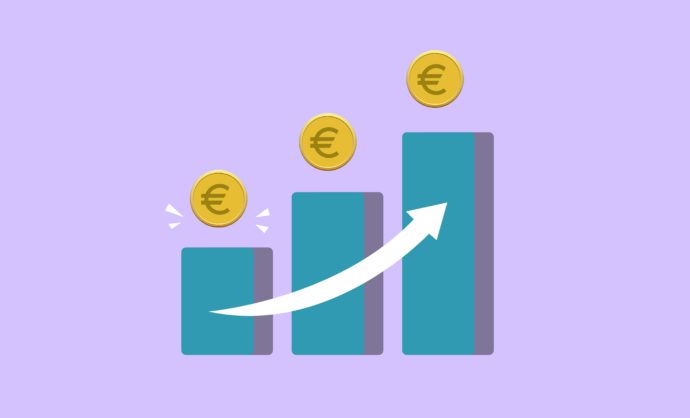Interest rates on bank loans are correlated to the policy rate. When the Bank of Canada raises its key interest rate, there can be an immediate impact on the amount of money you have to pay on variable interest rate mortgages. What to do if interest rates go up? Find out from your mortgage broker.
Interest rates on bank loans are linked to the Bank of Canada’s key interest rate. For economic and policy reasons, this institution makes adjustments to its key rate. These adjustments to the key rate can be periodic, but also spaced out over several years. In recent months, an increase in the policy rate is applied because of the constant inflation noticed in Canada. Specifically, the Bank of Canada has twice raised the policy rate by half a percentage point since the beginning of 2022 to curb inflation.
Over the past 30 years, the current inflation rate is at a 30-year high of 6.7%, which is well above the Bank of Canada’s target range of 2 to 3%. On a yearly basis, the consumer price index will rise by 4.8% in December 2021, for example.
Rising interest rates can have a financial impact on households, especially those who are close to over-indebtedness and those with variable rate mortgages. These borrowers are likely to feel the impact of rising interest rates immediately. For people who are over-indebted or who have recently taken out a variable rate mortgage, monthly payments may increase significantly until the end of the contract, especially since the Bank of Canada is still considering several adjustments to its key rate in order to curb inflation.
For real estate project holders and households who wish to buy a property, many questions may also arise at this time, especially if this is a good time to apply for a mortgage loan. In reality, several alternatives are possible, but the two main options are mainly to :
In any case, there are several other factors to be aware of before finding the right answer for your project.
Beyond the next rate hikes announced by the Bank of Canada, there are several other variables to consider. The current economic situation in Canada can provide significant indications as to the evolution of interest rates over the next few months and years. The shortage of housing, combined with rising material prices, and the urban exodus are contributing to a generalized increase in real estate prices. Although market observers and analysts have differing opinions, many believe that real estate prices will not decline in the coming years. Instead, they expect the acceleration in property prices to gradually fade. For these analysts, buying now is more attractive.
With the adjustment of the policy rate, the real estate market may experience a softening of sales. However, home prices are still high. This is because some potential buyers are still considering investing in real estate before further increases occur. Sales are therefore declining because there is less supply on the market. It is then difficult to assume a decrease in real estate prices until there are enough homes for sale.
Have you recently purchased a home with a variable rate mortgage and are wondering if keeping your variable rate mortgage is a good or bad idea? If so, you should know that converting to a fixed rate is not recommended since variable rates are still at a lower level than fixed rates. Your monthly payments will certainly change, but the amount of the increase will not be very significant. Moreover, the financial institution must notify you of any increase before each payment.
The increase in the mortgage rate requires a larger down payment. Therefore, if you are considering taking out a mortgage loan to buy a property, it is essential to verify your borrowing capacity before signing a contract. With interest rates rising, borrowing money is also becoming more expensive. So before taking out a mortgage loan, make sure you choose the type of rate to apply to your loan.
Following the increase in the key rate, whether or not a variable rate is still a good solution depends on several factors. The answer depends on your individual situation, and therefore on the state of your finances and your needs. If you are less sensitive to rate changes or are looking for more flexible credit, a variable rate mortgage is right for you. Compared to the penalties applied to fixed rates, the variable rate has lower penalties. However, if you have a lower risk tolerance, a fixed rate is more advisable.
Inflation in Canada is too high according to the Bank of Canada. The Bank of Canada’s goal is to bring inflation down to its forecast of 2%. Until the overall economy and inflation are under control, the Bank of Canada expects further increases in its policy rate in the coming months. Thus, the rate may rise to 2.5% or even 3% by the end of the year.
Fluctuations in the policy rate can have an impact on the finances of the most indebted households, especially those with variable rate mortgages. What to do when interest rates rise? Contact your mortgage broker, he is able to advise you according to your situation and your project.





